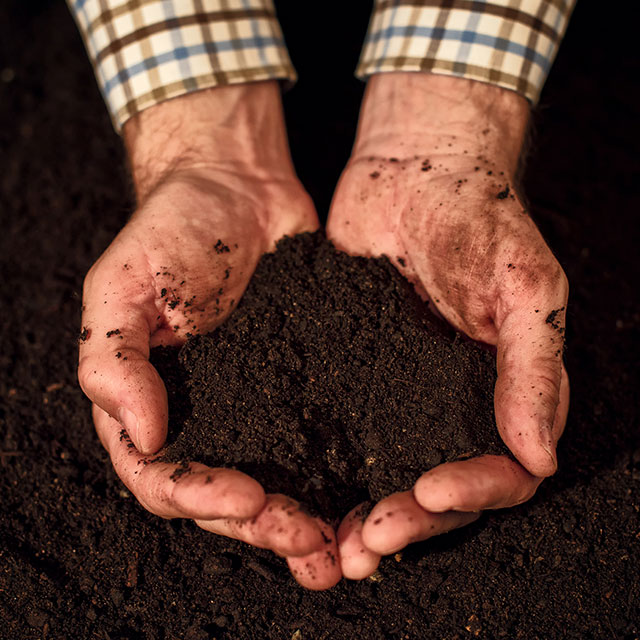
Why Composting is Important
Composting: the recycling of organic waste
So, you’ve started recycling and you’re doing your bit to save the planet, right? Absolutely! But, did you know that besides the paper, glass, plastic, and tin you’re currently separating at source, there’s another type of waste that can be recycled. As much as half of what we throw out is compostable. It’s called organic waste and by saving it from our bins and ultimately our landfills, and composting it instead, we can turn it into something beneficial, reduce our waste disposal costs, and help save our planet.
First things first, what is organic waste?
Quite simply, organic waste is waste with a biological origin that can be broken down by other living organisms. It includes fruit and vegetable peels, egg shells, coffee grounds, tea bags, bread, paper, cardboard, grass clippings, leaves, wood, and even cotton clothing.
So, what’s wrong with organic waste ending up in our landfills?
If it’s organic, it must be biodegradable, right? Sadly, this is not the case. Organic waste needs oxygen to compost and because of the structure of landfills, there is no oxygen available to break it down.
Instead, organic waste that ends up in landfills produces methane (CH4), leachate, and hydrogen sulphide – three by-products that have a devastating effect on our planet. Methane as a greenhouse gas is 20 times more harmful than carbon dioxide. Leachate, a liquid that extracts or ‘leaches’ elements of the matter through which it passes, contains elevated levels of organic and inorganic matter, heavy metals, chemicals and toxins. And finally, hydrogen sulphide is a highly toxic gas that primarily affects the nervous system.
Organic waste that composts adds valuable nutrients to our soil, but when it ends up in landfills, it means that we are losing essential macro-nutrients such as nitrogen, phosphate, potassium, and carbon, and micro-nutrients such as calcium, zinc, and magnesium. Organic waste also has a very high water content, so when it ends up in landfills instead of in our gardens, we also lose significant amounts of moisture.
And then there’s the scary reality that our landfills are under huge pressure.
Cape Town, for example, has three landfills – Coastal Park, Bellville South and Vissershoek. Currently, these are expected to reach capacity in 2018 (2022 if we’re really, really lucky) and while there are plans to build a new landfill in Atlantis, its development is currently being opposed by residents in the surrounding areas.
How can composting make a difference?
By composting, we not only avoid the negative consequences outlined above that arise when organic waste ends up in landfills, we also reduce the unnecessary transport of waste to those landfills, which means a saving on the high waste disposal costs that we pay to the municipality and/or our waste management company. Plus, compost…
- Improves soil structure (very important as our soils are degrading)
- Prevents soil erosion
- Adds nutrients to the soil and increases moisture retention
- Prevents plant diseases, and
- Helps maintain food security.
Sound good? Here’s how to make your own…
Ingredients
- ½ brown material (carbon rich) e.g. paper, cardboard, wood chips, leaves, manure
- ½ green material (nitrogen rich) e.g. fruit and vegetable peels, coffee grounds, tea bags, egg shells, grass clippings
- Water
- Air (to eliminate odours)
Method
Place your brown and green material in a composter and use a garden fork to mix it from time to time. This allows oxygen to work its way into the compost. Once the compost has heated up and cooled down again, add it to your soil and watch your garden flourish!
Notes
- A compost heap should be roughly 1 cubic metre in size
- Composters are available at your nearest Builders Warehouse
- New Composting Bags are now also available online at Earth Probiotics – with them you don’t need a garden, and can compost in your garage!
- ZTL Organics collects organic waste from offices, hotels, canteens, and restaurants in the Cape Town CBD and Southern Suburbs
- Although meat and dairy can make good compost, it’s best to avoid them as they can smell while they are breaking down
- Use newspaper as a bin liner when collecting kitchen waste
- Adding Bokashi, a wheat bran inoculated with yeast, fungi, and probiotic bacteria to your kitchen waste is a great way to eliminate odours
- Garden waste must be shredded before being added to your compost heap
- If your compost starts heating up, you’re on the right track, but it can only be used once it’s cooled down (2–3 months)
- If you see white patches in your compost heap, it’s fungus and it means you’re doing things right!
How can Postwink help?
We have a wonderful range of bins that are ideal for collecting commercial-sized organic waste. Our step-on bin is a pedal-push bin made of durable and recyclable polypropylene, and is available in 45 and 68 litres. If you need even more space, our 140-litre Wheelie bins are also up for the challenge! And, if you’re a restaurant or canteen-manager and you’re using biodegradable coffee cups and spoons, our Cup n Stack is an efficient and dedicated cup collection solution.
